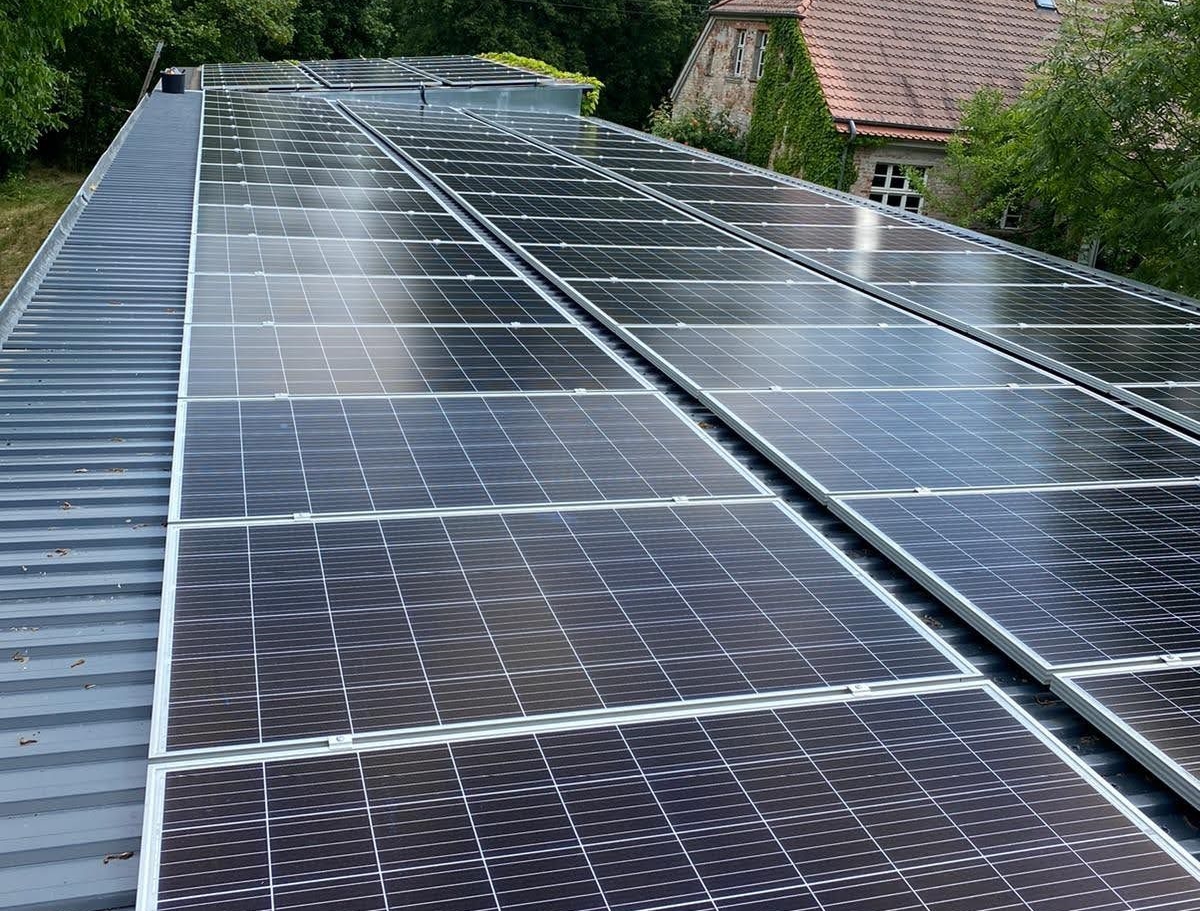Heat pumps have been hailed as the fastest way to cut German gas consumption. Faced with a profound energy crisis since Russia’s invasion of Ukraine, the country is now considering a ban on new gas and oil heaters from 2024. This has sparked much discussion about the ability of heat pumps to economically compete with gas heating, as well as the role of PV in reducing electricity bills.
Although simulation data on the return on investment of heat pumps and their symbiotic relationship with rooftop PV abound, field statistics are harder to come by. Tim Riedel, a sustainability consultant at Berlin-based Planetgroups, has shared data from a heat pump and PV system installed at his single-family home in Germany.
Riedel installed an air-source heat pump system on his listed building from 1796 on Feb. 24, 2022, consisting of an external heat pump unit with a heating output of up to 12.86 kW, a 170-liter hot water storage tank, and a smaller indoor unit for heating water located in the property's basement.
“Between May and October, the main heat pump is not active at all, we just use the small one to heat water,” Riedel told pv magazine. “In the long run, it will be more cost-effective, because it is more efficient to heat the water with the small heat pump. Then the larger one doesn’t have as many starts, which extends its life span.”
The heat pump system cost €31,000 ($34,260), including installation services. It was eligible for a €10,500 subsidy from Germany's heat pump rebate scheme, bringing the price down to €20,500.
Riedel reports his property consumed 20,000 kWh of gas in 2021, while the heat pump used 4,009 kWh of electricity from April 1, 2022, to March 31, 2023. Given an electricity price of €0.53/kWh and a gas price of €0.18/kWh, the heat pump system resulted in savings of €1,595 per year, Riedel said. The system’s payback time is thus around 13 years, based on current gas and electricity prices.
“This result on investment doesn’t even take into account the fact that a new gas heating system would also cost money,” Riedel noted. “The paying back period of only the additional costs of a heat pump compared to a gas heating system would be much shorter.”
The Riedel family also has a 24 kW PV system installed on the rooftop of their barn, which further maximizes their yearly electricity savings. The system was installed in 2020 and features 325 W solar modules from German manufacturer Heckert Solar. It produces 19,000 kWh of electricity a year and had a total cost of €26,000, including installation on the barn’s flat roof.
The rooftop PV system produced 1,433 kWh of the electricity consumed by the heat pump, according to Riedel. At a price of €0.07/kWh for the self-consumed electricity, the PV and heat pump system resulted in yearly savings of €2,256 compared to heating with gas.
The Riedel family installed a heat pump system without modernization or insulation work. Their 18th-century house uses conventional radiators, and they replaced one with a bigger one. A smart thermostat controls the system remotely for efficient heating.
Given its yearly heating output of around 20,000 kWh and electricity consumption of 4,009 kWh, the heat pump system shows a seasonal coefficient of performance (SCOP) of 5. According to its datasheet, the coefficient of performance (COP) is 2.98 at an external temperature source of 7 C and 4.14 at 2 C. The SCOP reported on the datasheet is 4.53.
“This five to one [heating output to electricity consumption] ratio isn’t just due to the heat pump. It’s also because of how we use it with the smart meter,” said Riedel. “We also had temperature control before [installing the heat pump system], but this meter is just a bit smarter.”
Riedel noticed decreased efficiency when outside temperature was below -3 C, and significant electricity consumption at -10 C, but the heat pump's cold weather performance is not a major concern, as Germany only has such weather for a short period.
“People are very risk-averse, they buy their equipment as if they need to survive a winter in the North Pole. What they don’t realize is that we have maybe a week or two of really cold weather in Germany every winter.”
This content is protected by copyright and may not be reused. If you want to cooperate with us and would like to reuse some of our content, please contact: editors@pv-magazine.com.



By submitting this form you agree to pv magazine using your data for the purposes of publishing your comment.
Your personal data will only be disclosed or otherwise transmitted to third parties for the purposes of spam filtering or if this is necessary for technical maintenance of the website. Any other transfer to third parties will not take place unless this is justified on the basis of applicable data protection regulations or if pv magazine is legally obliged to do so.
You may revoke this consent at any time with effect for the future, in which case your personal data will be deleted immediately. Otherwise, your data will be deleted if pv magazine has processed your request or the purpose of data storage is fulfilled.
Further information on data privacy can be found in our Data Protection Policy.